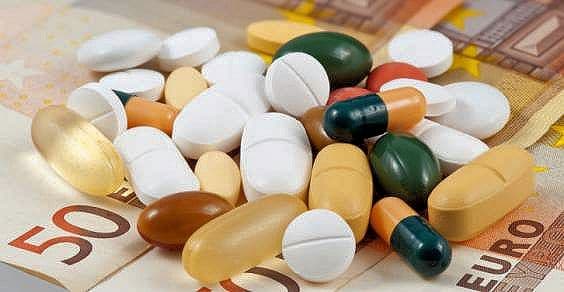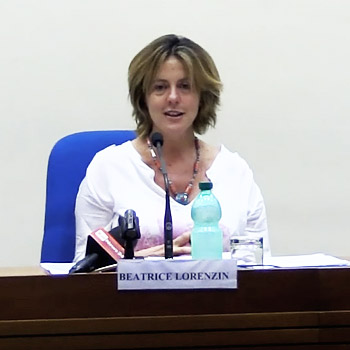
This was declared by Scaccabarozzi, on the day in which the Chamber votes on the Local Authorities Decree, containing the discussed provisions on health. “It can be said that the State finances pharmaceutical assistance until October, while the industries take care of it for the remaining months of the year”.
Of Aboutpharma Online editorial staff – August 4, 2015
 On the day in which the Chamber votes on the local government decree, containing the discussed provisions on health, Massimo Scaccabarozzi, president of Farmidustria, underlines how pharmaceuticals are also affected: "The 2.35 billion euros of failed increase in the National Health Fund weigh 308 million euros for us" explains Scaccabarozzi at Adnkronos Salute. “It can be said that the State finances pharmaceutical assistance until October, while the industries take care of it for the remaining months of the year. There is an established ceiling of 14.85% of total healthcare funding between territorial and hospital pharmaceutical expenditure in Italy. For every billion that is cut, therefore, 148 million concern pharmaceuticals. We continue to supply the drugs out of liability, but since the spending ceiling is deliberately low and we are constantly exceeding those 148 million, in the end those 148 million will have to be covered by the industries".
On the day in which the Chamber votes on the local government decree, containing the discussed provisions on health, Massimo Scaccabarozzi, president of Farmidustria, underlines how pharmaceuticals are also affected: "The 2.35 billion euros of failed increase in the National Health Fund weigh 308 million euros for us" explains Scaccabarozzi at Adnkronos Salute. “It can be said that the State finances pharmaceutical assistance until October, while the industries take care of it for the remaining months of the year. There is an established ceiling of 14.85% of total healthcare funding between territorial and hospital pharmaceutical expenditure in Italy. For every billion that is cut, therefore, 148 million concern pharmaceuticals. We continue to supply the drugs out of liability, but since the spending ceiling is deliberately low and we are constantly exceeding those 148 million, in the end those 148 million will have to be covered by the industries".
Scaccabarozzi then also spends a few words on the regulation of the revision of the pharmaceutical handbook, hoping that "it will be done with rigorously scientific criteria, as is the intention of Minister Lorenzin, and not cutting here and there". "I count on the seriousness of those who will make this review - he continued - otherwise the health of citizens is put at risk". And on the rule that provides for separate tenders for under-patent and expired-patent drugs. “Luckily this rule has been included – he says – was a great sign of maturity on the part of Parliament, because it goes in the direction of supporting scientific research. It is right that off-patent drugs have a price reduction, but those still covered are relatively new and to put them with the others would mean no longer recognizing intellectual property. Those who criticize this rule have not understood what the value of research means. In any case, we certainly don't have a monopoly, someone could do it for us: the problem is that we are the only ones to do it. And thanks to this today many diseases are curable.
– was a great sign of maturity on the part of Parliament, because it goes in the direction of supporting scientific research. It is right that off-patent drugs have a price reduction, but those still covered are relatively new and to put them with the others would mean no longer recognizing intellectual property. Those who criticize this rule have not understood what the value of research means. In any case, we certainly don't have a monopoly, someone could do it for us: the problem is that we are the only ones to do it. And thanks to this today many diseases are curable.
“This provision – concludes the president of Farmindustria – also brings positive elements: such as the long-awaited strengthening of the Italian Medicines Agency (Aifa) which will bring more investments if the inspections are faster, thanks to the fact that there will no longer be a shortage of dedicated personnel in the agency".
Healthcare maneuver. The Chamber votes its trust in the Local Authorities Decree. The 2.35 billion cut in healthcare, the Aifa reform and the funds for Roman hospitals for the Jubilee are law
 Reimbursement prices are coming for drugs for "therapeutically similar groupings". As far as drugs are concerned, it is also envisaged that, instead of proceeding with the extraordinary revision of the national pharmaceutical handbook envisaged by the Balduzzi decree of 2012, AIFA must, by 30 September 2015, renegotiate the reduction in the reimbursement price of medicines paid by the NHS, divided into therapeutically similar groupings, however separating, for the purposes of determining the reimbursement price charged to the NHS, expired patent drugs from those covered by patents.
Reimbursement prices are coming for drugs for "therapeutically similar groupings". As far as drugs are concerned, it is also envisaged that, instead of proceeding with the extraordinary revision of the national pharmaceutical handbook envisaged by the Balduzzi decree of 2012, AIFA must, by 30 September 2015, renegotiate the reduction in the reimbursement price of medicines paid by the NHS, divided into therapeutically similar groupings, however separating, for the purposes of determining the reimbursement price charged to the NHS, expired patent drugs from those covered by patents.
Pharmaceutical companies involved in the negotiation will have three options:
– or they will lower the prices to the level of the reference one for reimbursement (which will be the lowest one within the group);
– leave the same price and refund the difference between their price and the refund price with the payback;
– do not lower the price, also refuse the pay back and choose to switch to range C.
(Ed. As is known, the original text of the government amendment on groupings by therapeutically similar categories envisaged that it be calculated without distinguishing medicines with expired patents from those with patents still in force. In the last text of the maxi-amendment, which implements the changes by the Budget Commission, as we have just seen, it is instead envisaged that there are two reimbursement prices for each therapeutic grouping: one for branded drugs and one for expired patent drugs. to specify that there will in any case be no problems in respecting the savings objectives of this part of the maneuver valued by the agreement of 2 July at 500 million euros per year).
Another measure on drugs concerns i biotechnological medicines, which following the expiry of the patent of the active ingredient of a drug and in the absence of the initiation of a concomitant price negotiation procedure relating to a biosimilar or therapeutically similar medicinal product, will also be subject to renegotiation of the reimbursement price to be paid by the SSN of the biotechnological medicine by Aifa. (Ed. This part of the decree was also sub-amended in the Budget Commission where the minimum level of the 20% discount to be obtained by companies was removed).
( … continues) extracted from dailyhealthcare.it – 04 AUG 2015
Related news: Healthcare, half of the cuts from goods and services
The Local Authorities Legislative Decree is law: the Government's ax on Health
DECREE-LAW 19 June 2015, n. 78 Urgent provisions concerning local authorities. (15G00093) (GU n.140 of 19-6-2015 – Ordinary Supplement n. 32 )
Amendments to Legislative Decree 78/2015
DL approved in the Senate Redetermination of the objectives of the internal stability pact





